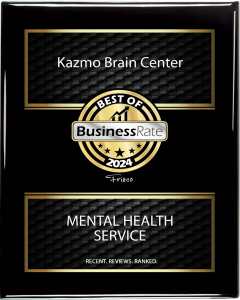Stress is a natural part of life, and in small doses, it can motivate you to meet challenges and achieve goals. However, when stress becomes chronic—persisting over an extended period—it can have significant consequences for both your mental and physical health. Understanding the impact of chronic stress is the first step toward managing it effectively.
The Mental Health Impact of Chronic Stress
Prolonged stress can lead to serious mental health challenges, including:
- Anxiety and Depression: Chronic stress often triggers constant worry or feelings of hopelessness, contributing to anxiety disorders and depression.
- Memory and Concentration Issues: Stress affects the brain’s ability to focus and recall information, making it harder to complete tasks or make decisions.
- Emotional Instability: Mood swings, irritability, and emotional outbursts are common under prolonged stress.
- Burnout: Persistent stress can result in exhaustion and a lack of motivation, particularly in work or caregiving roles.
The Physical Health Consequences
Chronic stress affects not only your mind but also your body, increasing the risk of high blood pressure, heart disease, and stroke while weakening your immune system and leaving you more vulnerable to illnesses. It can disrupt digestion, causing stomachaches, indigestion, or chronic conditions like irritable bowel syndrome (IBS). Additionally, stress often leads to sleep disturbances, such as insomnia or restless nights, which further exacerbate its negative impact on overall health.
Breaking the Cycle of Chronic Stress
Managing chronic stress requires a combination of awareness and actionable strategies. Here are some steps to take:
- Identify Triggers: Keep track of the situations or activities that heighten your stress levels.
- Adopt Relaxation Techniques: Practices like meditation, yoga, or deep-breathing exercises can help calm your mind.
- Establish a Routine: Regular exercise, balanced meals, and consistent sleep schedules support resilience against stress.
- Seek Social Support: Talking to trusted friends, family, or joining support groups can help alleviate feelings of isolation.
- Consider Professional Help: Therapists and counselors can provide coping strategies and address underlying issues contributing to stress.
How Kazmo Brain Center Can Help
At Kazmo Brain Center, we recognize the far-reaching effects of chronic stress and are here to support you. Our expert team offers personalized therapy, stress management techniques, and holistic treatment plans to help you regain balance and improve your well-being.
Contact us today at (469) 269-0080 or browse our website to explore how we can assist you in managing chronic stress and leading a healthier life.







